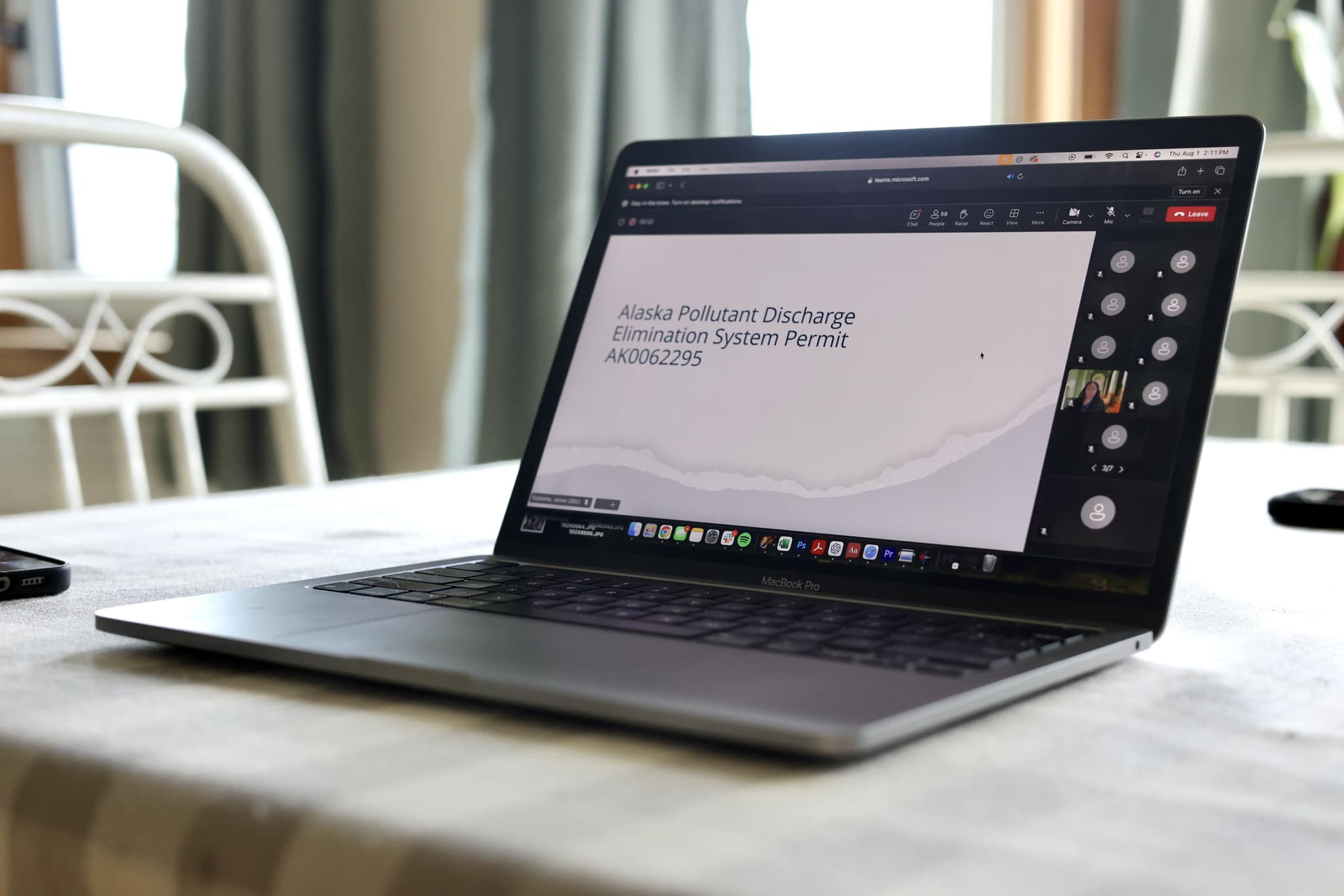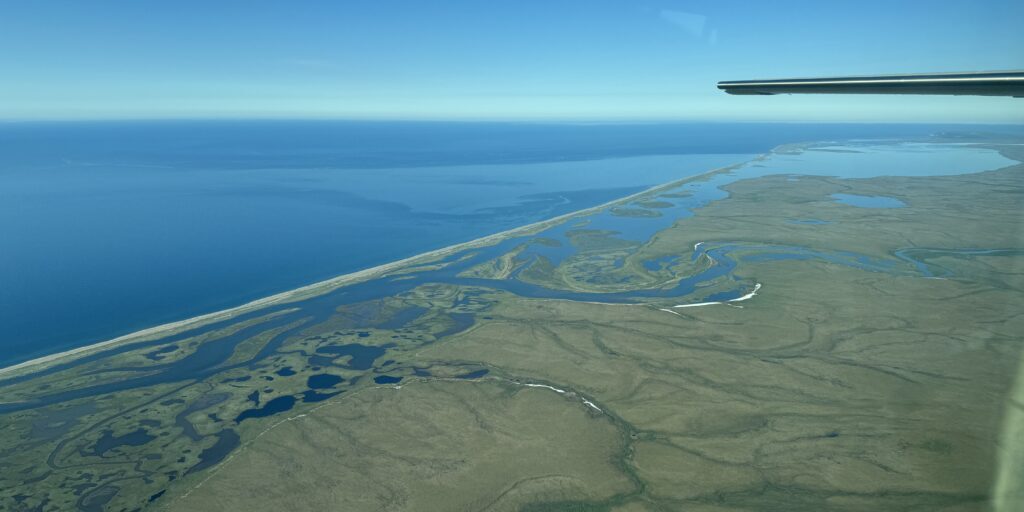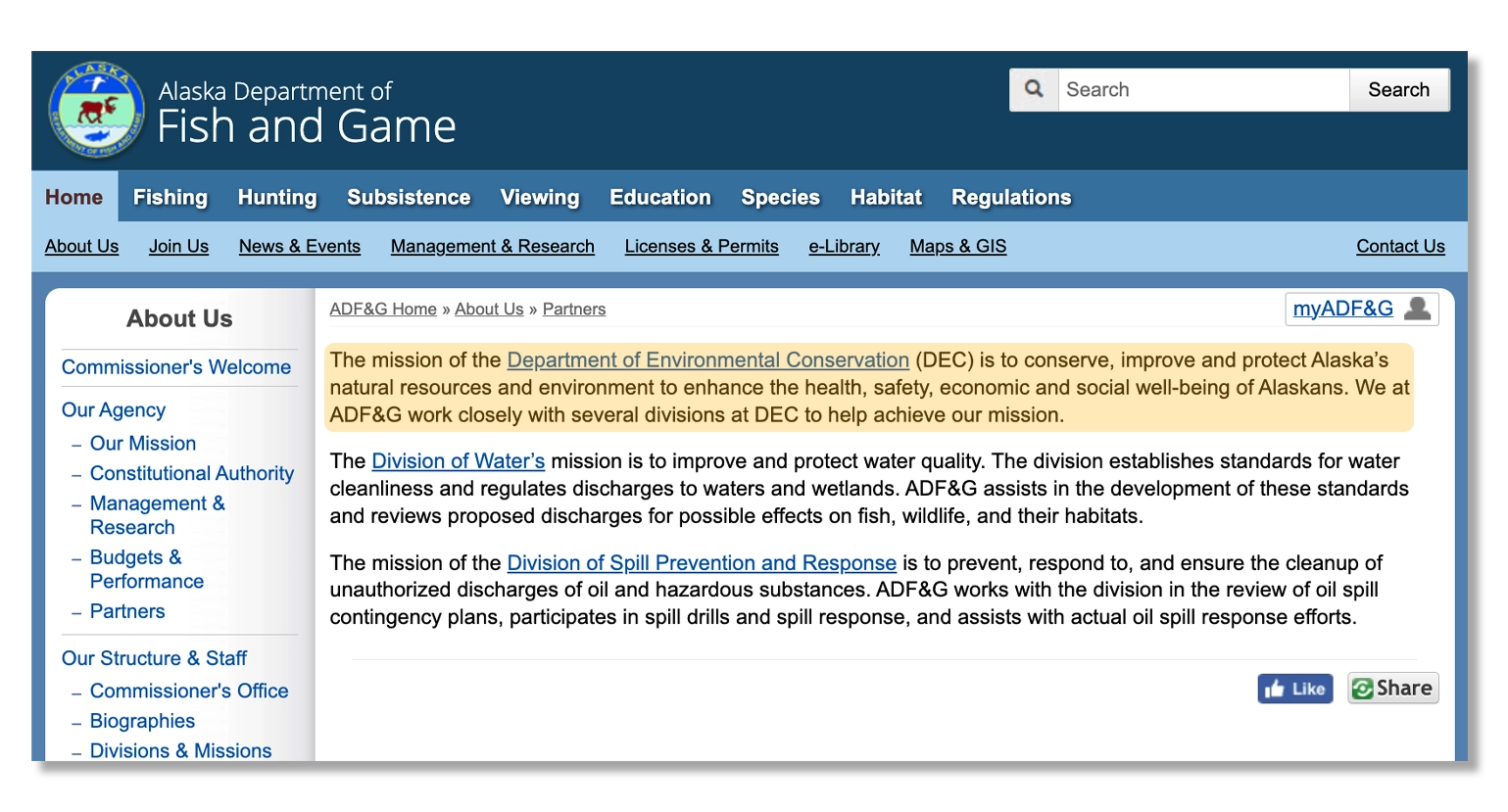Safety Sound may soon be home to a new gold dredging operation, that’s if the Alaska Department of Environmental Conservation (DEC) grants a permit to IPOP, LLC. The Nevada-based company has been working towards starting operations since 2018 when they purchased claims in the Bonanza Channel estuary just 30 miles east of Nome.
After previously being denied by the Alaska District in 2018, IPOP was the benefactor of a surprising reversal issued by the US Army Corps of Engineers in March of 2024.
What currently stands in IPOP’s way of beginning operations is an Alaska Pollutant Discharge System permit. The permit would allow IPOP to install a silk curtain around their dredge to contain turbidity, a measure of how cloudy water is, from June through October.
The planned operations would significantly deepen the channel from around seven feet to as deep as 31 feet. The company's permit application anticipates that with 24-hour operations during mining season, they will dredge approximately 4.5 million cubic yards. The channel would be dredged over the course of five years.
Unified Opposition

The project has been the subject of opposition since news first broke of IPOP LLC’s intentions to dredge the Bonanza Channel in 2018. This year, the DEC opened up a request for information allowing for individuals and organizations to submit comments on IPOP's permit application.
Of the 32 individuals or organizations that submitted comments obtained by KNOM, 27 expressed opposition to the project moving forward. Three government organizations weighed in on the project, and two commenters expressed support for the project.
One such supportive comment was submitted on behalf of IPOP, LLC by James Buchal, a lawyer based in Portland, Oregon.
“Looking over the public comment posted online to date on the DEC website, we thought it worth noting for the record that the opposition continues to be the product of an Alaska Native elite; particular families that were also involved in opposition to the federal permit,” Buchal wrote.
Local organizations including the Solomon Native Corporation, Bering Straits Native Corporation, Sitnasuak Native Corporation, Norton Sound Economic Development Corporation, and Kawerak, Inc, Norton Sound Health Corporation, King Island Native Community, Native Village of Council and Nome Eskimo Community have signed on to efforts to oppose the project.
A letter signed by leaders from several of the aforementioned organizations was submitted to the City of Nome for endorsement. Mayor John Handeland submitted the letter along with remarks opposing the permit application to the DEC’s request for information.
Frustration with Informational Meeting

The DEC hosted a virtual informational meeting Thursday, August 1 that included a brief presentation on the project. After the slideshow, representatives from the DEC answered questions from the public for over two hours.
According to Village of Solomon Environmental Coordinator, Deilah Johnson, the village submitted a public hearing request on July 1. She claims that a permit writer with the DEC offered a public hearing for mid-August, giving the village sufficient time to mobilize the community to attend. After the exact date was left unconfirmed, she sent an email that included the Commissioner and Deputy Commissioner of the DEC.
Then, on July 29 she received a call notifying her of an informational meeting scheduled for August 1, just three days later. The meeting was held just four days before a comment period on IPOP LLC’s water discharge permit application was set to conclude.
Johnson described the informational meeting as a “sorry excuse for a public meeting for providing information.”
Cameron Piscoya, Vice President of the Village of Solomon, echoed Johnson’s sentiments, stating that the meeting was “last minute” and “poorly advertised.” Piscoya said he found the meeting frustrating both during and after his participation.
“We've been active on this permit for the last seven to eight years. It was last minute and poorly advertised. Looking at Facebook there were still people wondering that night ‘What time is the meeting at?’” Piscoya said. “I rewatched it this morning and it was just as frustrating as it was when I left.”
Push for Public Hearing

A common theme of the informational meeting, both in the comments shared in the Microsoft Teams chat and unmuted microphones during the Q&A section, were demands for a public hearing.
Johnson believes that an in-person hearing would draw a much larger crowd than the 59 live participants of the informational meeting. She also feels that, given the DEC’s own guidelines, they’re entitled to host one given the amount of public interest in the project.
A public hearing is a procedural event that offers community members an opportunity to voice their opinions on the record. Representatives of the DEC pointed out that they would not be able to answer questions at such a hearing, like they could at the informational meeting.
Community Concerns and Environmental Impact
During the informational meeting, Village of Solomon’s President Kirsten Timbers highlighted the historical and cultural significance of the Safety Sound area to the people of Solomon and surrounding communities. The area has been used for hunting, fishing, and gathering for generations.
Timbers expressed concerns about the potential environmental impact of the gold dredge project, including the noise from the steel cutter head and diesel generators, which could disturb local wildlife such as moose, reindeer, beluga, and seals.
“I just think this mining operation is going to have just a tremendous unknown impact that we don't know what the recovery will be after their five years of operation,” Timbers said.
Timbers also questioned the role of the DEC in the permitting process. She criticized the DEC’s narrow scope and perceived contradiction to their mission statement of protecting Alaska’s natural resources and environment.
“I was amazed by the very narrow scope in which they see their role in the permitting process. It directly is contradictory to their very mission,” Timbers said. “How can the state have a mission to protect and also this very narrow and forced permitting? It's just unfathomable.”
What's Next?
The Village of Solomon is engaging in advocacy efforts to raise awareness about the project and its potential impacts. The village plans to produce a documentary with SalmonState to visually convey the significance of the area and the community’s connection to it.
The DEC is processing comments received from the request for information before making an official determination on IPOP, LLC's permit. A decision to host a public hearing in Nome has not been made at time of publication.
For now, as the summer subsistence season winds down locals can be seen boating, fishing, and berry picking near the Bonanza Channel. Whether they'll be able to do the same this time next year remains to be seen.





